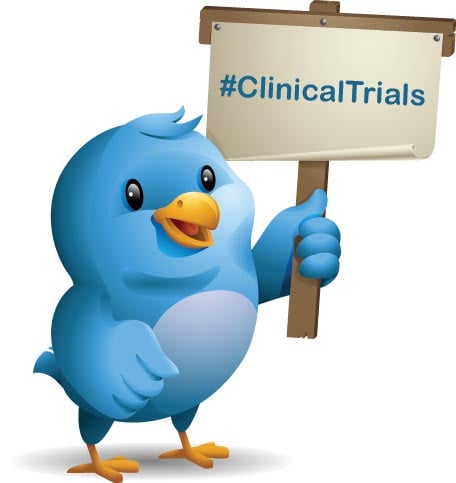
By now, just about everybody has run into a hashtag on Twitter, Facebook, or Instagram. These pithy mini-monikers allow users to share related information and have conversations about particular subjects. Hashtags, at the most basic level, connect users with similar interests.
For clinical trial marketers, hashtags are a simple way to help users find them. On Twitter, in particular, there is a growing number of online communities springing up around hashtags. These communities are a promising resource for clinical trial marketers to reach their target audience. Conversely, hashtags and online communities provide a direct line from patients seeking out information to clinical trials.
#PatientsSeekingInfo
The advent of the Internet and social media is rapidly changing the way clinical trials recruit patients. While clinical trials are still actively pushing out information to their targets, patients are now taking the lead in seeking information. The Internet has made information accessible at a level previously unrealized in years passed. Patients are utilizing forums and creating online communities to share and find information. These organizations create a natural resource for clinical trial marketers to connect with patients.
#TwitterCommunities
Twitter has become a rich resource of online communities formed around unique topics and interests. These communities and discussions are formed around hashtags, many of which have become ubiquitous and well known within the healthcare community. For example, the American Society of Clinical Oncology maintains a brief list of popular hashtags that users can follow to stay informed about meetings or other topics in oncology.
In his blog, Dr. Matthew S. Katz proposes a system for cancer-related hashtags so that users can begin creating online communities in a more organized way. Citing the success of the hashtag #bcsm, he noted that these Twitter forums allow users to effectively pool resources and information and to connect with advocates, caregivers, and clinical trials.
#OvercomingBarriers
Online communities, such as the ones formed around hashtags on Twitter, are helping clinical trial marketers to overcome traditional barriers, including physician discouragement in participation and lack of information. Online forums allow clinical trials to connect directly with their target audience and with physicians who can help encourage participation. Many clinical trial marketers have already begun participating in these forums; those who are not are missing a golden opportunity to connect with patients, physicians, and advocates.
Clinical Trial Marketers should begin by searching for and following hashtags that may relate to their trial. Marketers should engage with patients and healthcare providers in these forums by providing useful resources and information on how their trial may benefit them. Clinical trial marketers can also direct users to helpful resources, such as clinicaltrials.gov, where they can collect additional information.
The shift in the role of patients from passive to active information seekers provides marketers with a unique opportunity to engage patients in a meaningful way. By providing useful information in these hashtag-centered forums, marketers will be able to reach the patients who are most likely to make their trial a success.





